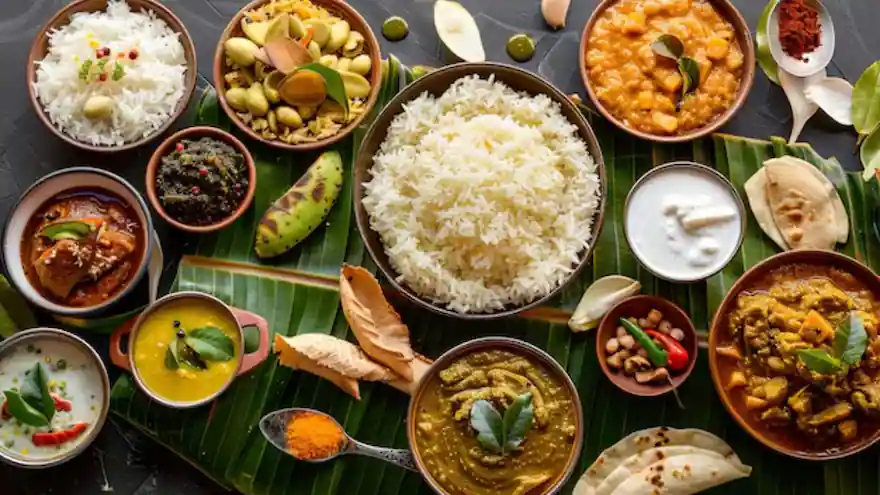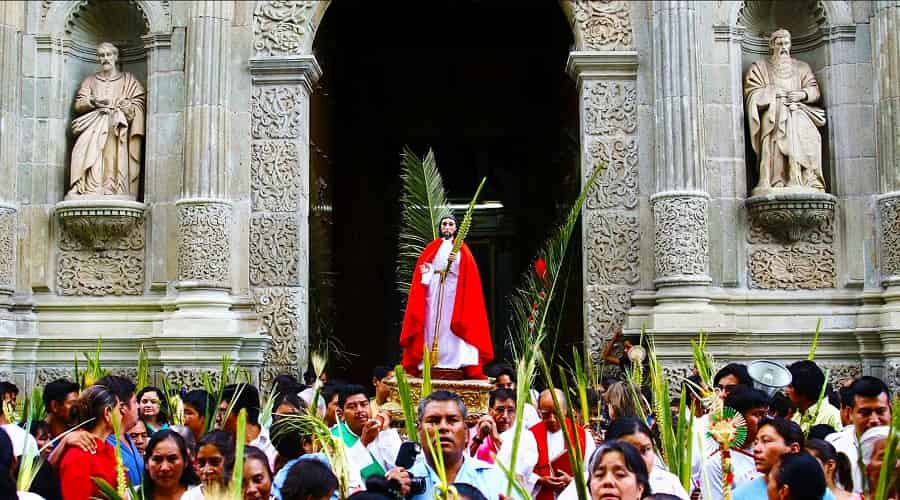Imagine waking up on a sultry April Sunday to the gentle shimmer of backwaters outside your window, the air already thick with the promise of summer. In the distance, the soft clanging of maramani—wooden church bells—floats through the stillness, calling the faithful to prayer. From nearby kitchens, the aroma of curry leaves crackling in hot coconut oil mingles with woodsmoke, drifting in through open shutters to greet you like an old friend. These are the sights, sounds, and scents of Easter morning in Kerala—earthy, sacred, and unmistakably local.
Home to one of the oldest Christian communities in the world—the Malayali Syrian Christians—Easter in Kerala is a solemn yet soulful religious and cultural experience. For foreign travelers, it is a way to experience something that is rarely shared on mainstream travel guides—a quintessential Indian take on Easter.
Holy Saturday Night’s Vigil of Faith and Flame
Easter celebrations start at 10 PM on Saturday night, when churches across the state are lit up with thousands of candles and devotees, dressed in white and gold, sing hymns of prayer and hope. From grand basilicas to village chapels, the Easter vigil mass is a time of quiet contemplation and gratitude.
Easter Sunday Finery
On Easter morning, the air hums with church bells while devotees dressed in their Sunday best throng Easter masses. Women dressed in fine white and gold linen sarees, and men in their elegant mundus (a garment worn around the waist) make for a charming sight. In Kerala’s repressive heat, celebrations are better enjoyed in linen and cotton than in silk and heavy suits.
A Feast Full of Grace
After the fasting of Lent, an Easter meal in Kerala is a feast that resonates with gratitude. You’ll be served crispy, lace-edged appams to help you soak up a delicate and aromatic chicken stew; an unctuous duck curry with a spicy kick; mackerel in coconut curry; caramelised and soft beef ularthiyalu (stir fry); a number of vegetable side dishes called thoran; and desserts like elaneer pudding (tender coconut jelly) and banana halwa to end the lavish feast.

Joy of Being Included
Hospitality runs deep in Malayali culture, and even deeper during festivals. Whether you are staying in a heritage hotel in Fort Kochi or a quiet guesthouse in Kottayam, be sure you’ll be invited to share an Easter meal or a church mass. Join in! You don’t need to know the language or follow all customs to enjoy the moment.
Easter in Kerala isn’t about easter eggs and commercial displays; it is quiet, heartfelt and deeply rooted in tradition. Malayalis see Easter as a time of rejuvenation and forgiveness; a time for family and gratitude. So, if you are looking for a slow and soulful celebration, make sure to add Kerala on your Easter travel checklist!


[…] There’s something otherworldly about waking up in Kerala on Easter morning. The scent of curry leaves mingles with candle smoke. Wooden church bells echo through sleepy backwaters. And families—dressed in crisp white—gather for dawn services, followed by feasts that span generations. Whether you’re witnessing midnight vigils under the stars or sharing appam and stew with a local family, Easter in Kerala is a quiet, spiritual celebration that leaves an indelible mark on your heart… Read More. […]